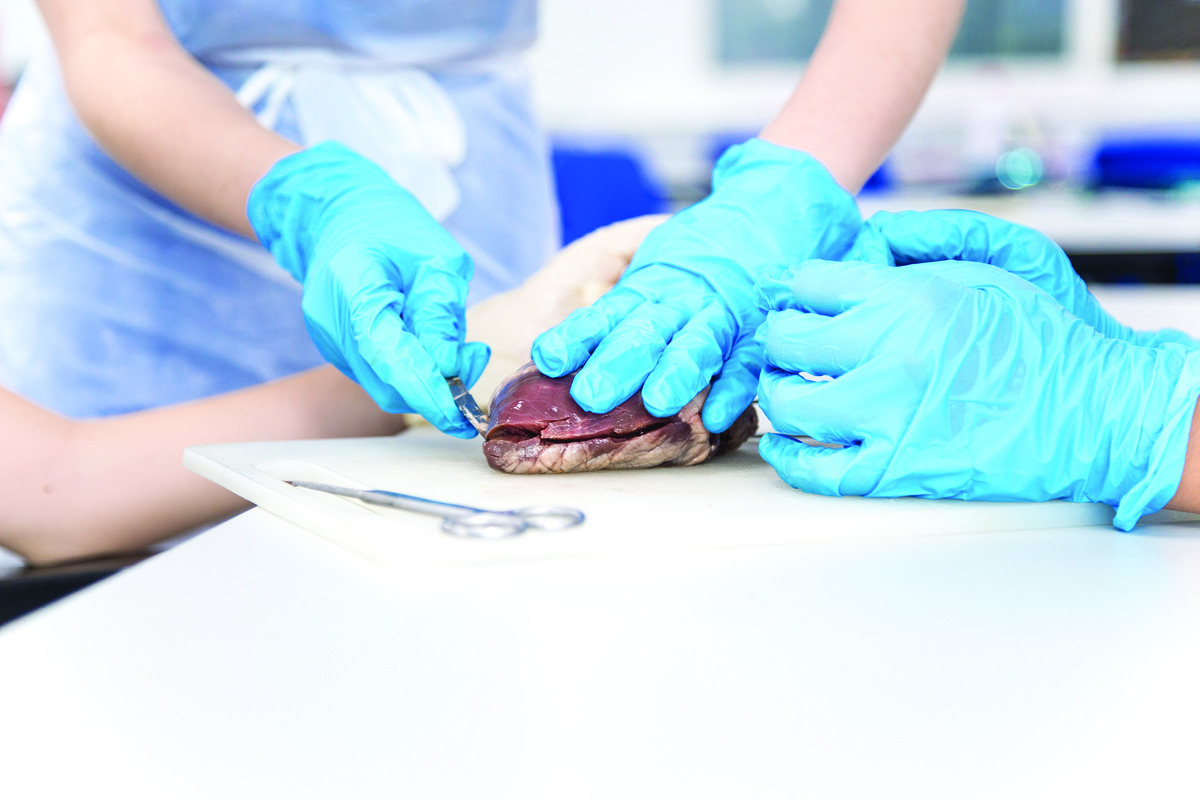Occasionally we are asked if it is safe for pregnant women to participate in dissection activities using specimens preserved in Carosafe® or Carolina’s Perfect Solution®. The following information is intended to help women discuss this question with their physicians. It can also be used to help schools decide whether or not to allow or require pregnant staff or students to participate in dissection activities.
Carolina’s Perfect Solution® and pregnancy
The chemical formula of Carolina’s Perfect Solution® is protected as a trade secret, but we have researched each component for information on its reproductive effects and have the following information that we hope is helpful to you.
The only chemical component of Carolina’s Perfect Solution® known to cause embryotoxicity would present that danger only when consumed as a beverage in large amounts. For this reason, it is on a number of governmental lists, including the California Proposition 65 reproductive toxicity list. However, staff and students performing dissection activities with specimens preserved in Carolina’s Perfect Solution® would seem to be at very low risk of embryotoxicity problems from this component because they will not be drinking the preservative.

Carolina’s Perfect Solution® also contains a very small amount of a chemical component that is on several lists of carcinogens. This component is in such dilute form in Carolina’s Perfect Solution® specimens that it is below the OSHA threshold to be treated as dangerous or reportable. Research evidence indicates that this component, while a carcinogen, does not appear to cause adverse reproductive or developmental effects. The component is not cited in the 1991 report of the U.S. Government Accountability Office (GAO) that lists chemicals of concern because of their reproductive and developmental effects. It is not on California’s Proposition 65 list of materials known to cause reproductive toxicity. The Teratogen Information Service (TERIS) states that the teratogenic risk to a child born after exposure to the component during gestation is “unlikely.” Shepard’s Catalog of Teratogenic Agents cites studies concluding that there is no evidence that this component causes reproductive harm in humans.
Of the remaining components of Carolina’s Perfect Solution®, none are implicated or listed as carcinogenic, embryotoxic, or teratogenic on any of the governmental lists.
Carosafe® and pregnancy
Carosafe® specimens are initially fixed (preserved) using a formalin solution containing a low level of formaldehyde, a carcinogenic chemical. After this process, specimens are placed in formaldehyde-free Carosafe®. While this minimizes the level of formaldehyde in the specimens, a very small residual amount remains.

Looking strictly at reproductive effects, research evidence suggests that formaldehyde exposure in the ranges permitted under OSHA regulations, and certainly at the levels encountered when dissecting Carosafe® specimens, would not be expected to cause adverse reproductive or developmental effects. Many animal studies have not found a connection between formaldehyde exposure and reproductive harm.
The initial fixing process may leave a small amount of residual methanol in Carosafe® specimens, as well. Since the formalin solution contains less than 1% methanol, any residual amount is present at an extremely low level. A literature review indicates that the teratogenic effects of methanol observed in rat studies only occurred at very high exposure levels. Methanol is poisonous, too, when consumed in high concentrations. However, we expect the residual amounts of methanol in Carosafe® specimens to be almost undetectable, so we would not expect that normal exposure to these specimens during dissection activities would have any effect on fetal development or maternal health.
The major component of Carosafe® is propylene glycol. It is a nontoxic ingredient commonly used in cosmetics. It is also routinely used as a cryopreservative for human and animal egg cells destined for in vitro fertilization. Reproductive and developmental toxicity research finds no known effects on fetal development from exposure to propylene glycol. Continuous breeding reproduction studies have been conducted using mice and rats. The animals consumed the chemical at various concentrations with their food or water. No adverse effects on reproduction were found in either species. Other published animal studies have found no reproductive effects in mice, rats, hamsters, or rabbits.
In our research on the 2 minor components of Carosafe® (2-amino-2-ethyl-1,3-propanediol, commonly known as AEPD, and ethylene glycol phenyl ether), we found no reports of reproductive problems associated with either of them.
Conclusions
In short, it appears that exposure to Carosafe® or Carolina’s Perfect Solution® specimens should not pose a significant risk to an expectant mother or her unborn child. If a pregnant woman observes standard safety procedures when dissecting Carosafe® or Carolina’s Perfect Solution® specimens, i.e., wears gloves, apron, and splash goggles and works in a well-ventilated area, there appears to be limited cause for concern.
That being said, pregnancy is such a special circumstance that we always advise a pregnant woman to discuss the matter with her physician, and to think seriously about whether or not she wants to expose herself unnecessarily to any chemical, regardless of its apparent safety. We also encourage schools to undertake this same careful approach when considering whether or not to allow or require pregnant staff or students to participate in dissection activities.
About The Author
Carolina Staff
Carolina is teamed with teachers and continually provides valuable resources–articles, activities, and how-to videos–to help teachers in their classroom.

